Vaccinations for Children, Why and When
Hello Parents!!!
Let us discussing another important topic related to kids "Vaccinations for Children, Why and When"?..
None of us want that our children get sick. We always try to protect our kids from any illness, no matter how small or even the sniffles.
Vaccines are the only way which could help to protect infants, children, and teens from serious diseases. Getting proper, timely and complete childhood vaccines means your child can develop immunity (protection) against diseases before they come into contact with them.
You could make your child safe from some of the diseases and at the same time you could also help protect your neighbors' children and other children around the country from the same diseases. You could actually help to rid the world of some of these diseases that have been crippling and killing children for centuries with help of vaccinations.
Now moving ahead let us first go through the below terms related to Vaccination?
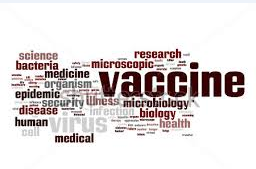 ???????????????
???????????????
What is Vaccine?
Vaccines are products that protect people against severe diseases. Unlike medicines that treat or cure diseases, vaccine to prevents them.
You will learn the terms vaccines, vaccinations and immunizations used across this site. Below given is a simple guide to help:
Vaccines are the products that produce immunity to a specific disease. Most of the vaccines are given by injection, some are given orally (by mouth) and some are given by nasally (sprayed into the nose).
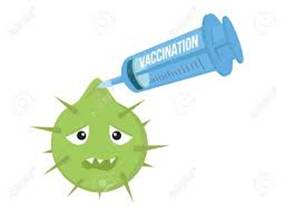
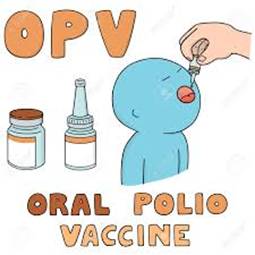
? Vaccination refersto an act of introducing a vaccine into the body to produce immunity to a specific disease.
? Immunizationrefers to a process by which a person or animal becomes protected against a disease. This term is often used interchangeably with vaccination.
"Vaccines cause immunization."
Vaccines are an amazing success story.
? In 1920's, diphtheria was one of the most dreaded childhood diseases in the United States which has killing over 10,000 people every year. To protect children we started vaccinating them against diphtheria in the 1930's and 40's, and the disease started disappearing. Today it is rare for a doctor even to see diphtheria case.
? In 1962, before measles vaccine was introduced, almost 5lac cases of measles were reported in the U.S. 10 years after when we started vaccinating, there were about 32,000 cases, and after more 10 years there were fewer than 2,000. In 1998 and 1999, only 100 measles cases were reported.
? In the middle of the 20th Century, smallpox was one of the most overwhelming diseases in the world. Millions died from it every year. In 1967, the World Health Organization (WHO) declared a war against smallpox with an intensive, worldwide vaccination campaign. 12 years later, smallpox was wiped out from the Earth forever.
? Parents in the 1950's were terrified as polio paralyzed children by the thousands. Then we prevent polio using the Salk and Sabin vaccines. Now the fight against polio is nearly won, and soon it will wiped out from the Earth as nothing but a bad memory.
Before discussing 12 routine childhood vaccines and the diseases they can prevent, let's have a brief look at what vaccines are and how they work.
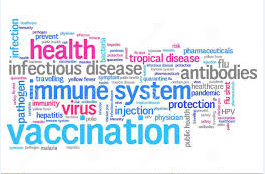
What does immunity?
Immunity is protection from a disease. If you are immune to a disease, you can be exposed to it without becoming sick.
How Immunity Works?
You get sick when your body is invaded by germs. When measles virus enters your body it gives you measles. Whooping cough bacteria cause whooping cough. And so on.
It is the job of your immune system to protect you from these germs. Here's how it works:
? Germs enter your body and start to reproduce. Your immune system recognizes these germs as invaders from outside your body and responds by making proteins called antibodies. Antibodies help to destroy the germs that are making you sick by eliminating the attacking germs which helps you to get well.
? Antibodies start doing their second job. Antibodies remain in the bloodstream, guarding against future infections. If the same germs ever try to infect you again even after many years these antibodies will defend you and destroy the germs before they make you sick. This process is called immunity. That?s why people get diseases like measles or chickenpox only once, even though they might be exposed many times during their lifetime.
This is a very effective system for preventing disease. The only problem is you have to get sick to develop immunity.

How Vaccines Help?
Vaccination gives you immunity to fight against a disease before it has a chance to make you sick.
Vaccines are made from the same germs or parts of them that cause disease - for instance, and Haemophilus influenzae type B (Hib) vaccine is made from parts of the Hibbacteria. But the generally germs in vaccines are killed/weakened so they won't make you sick.
The vaccines containing the weakened/killed germs are introduced into a body, usually by injection. The body?s immune system reacts to the vaccine in the same manner as it would if it were being invaded by the disease - by making antibodies. The antibodies destroy the vaccine germs same as they were the disease germs and then they stay in the body forever, giving it immunity. In future, if the body ever exposed to the real disease, the antibodies will be there to protect.
Hence, Immunizations help your child's immune system to get activated and the child develops protection against future infections, the same as if he or she had been exposed to the natural disease and the only good news is that, with vaccines your child doesn't have to get sick first to get that protection.
Why do vaccinations start so early?
Infants have more risk of infectious diseases because their immune systems have not yet built up the defenses to fight serious infections and diseases. As a result, diseases like whooping cough or pneumococcal can be very serious and can be even deadly for infants and young children. Vaccinations protect children before they are exposed to these diseases.
We always try to protect them from any illness, no matter how small - even the sniffles.

Can vaccines overload child?s immune system?
No, vaccines do not overload the immune system but it successfully fights off thousands of germs every day. In case if your child gets several vaccines during a day,it structure only a small fraction of the germs their body fights off.
<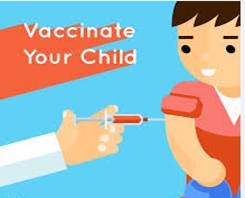
Vaccination chart
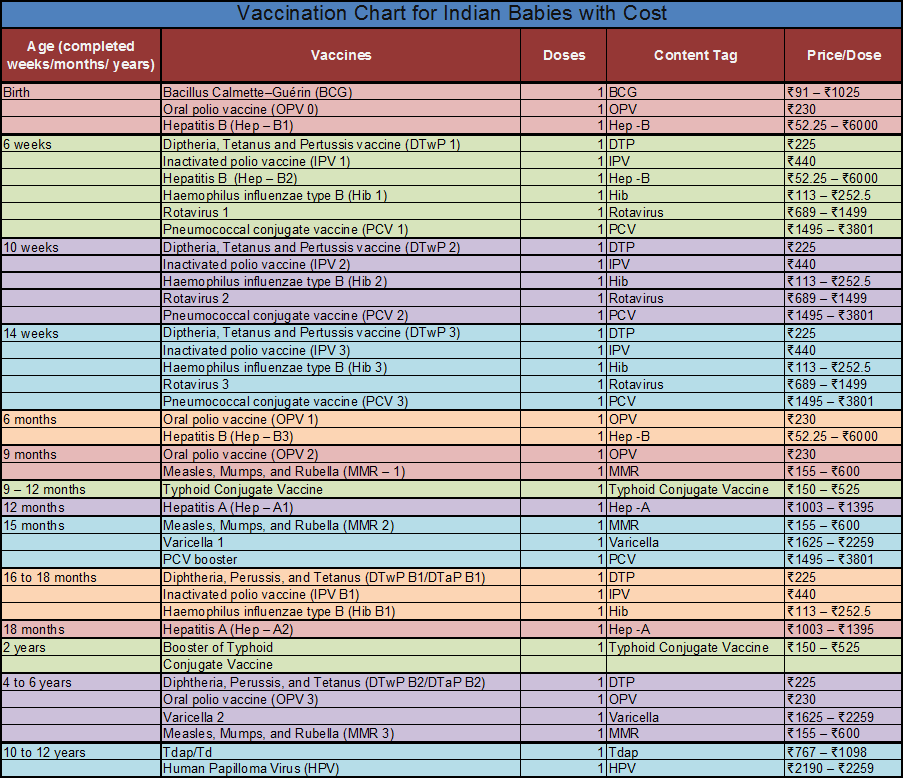
 ???????????????
???????????????






